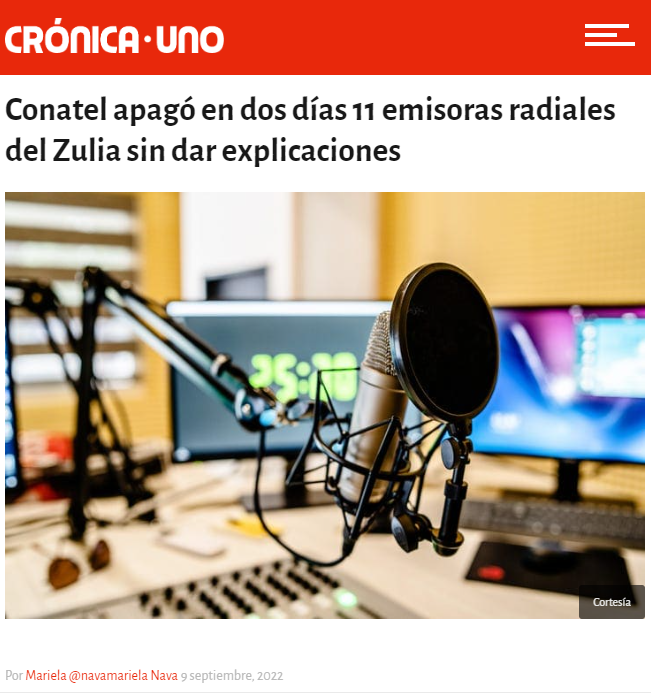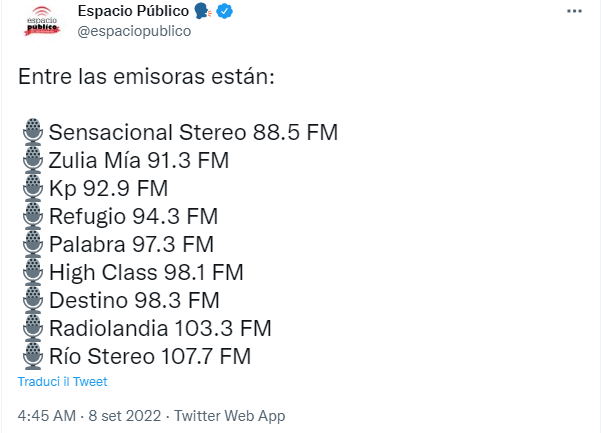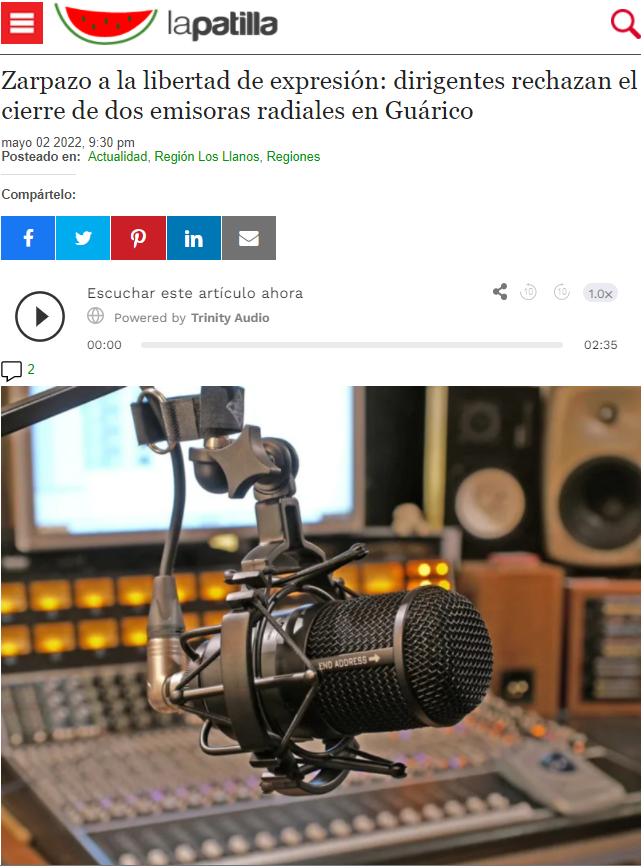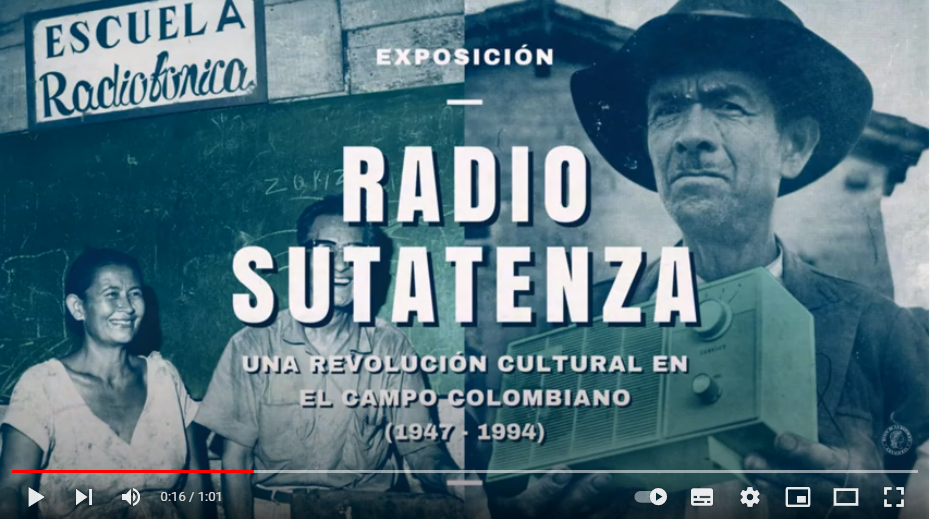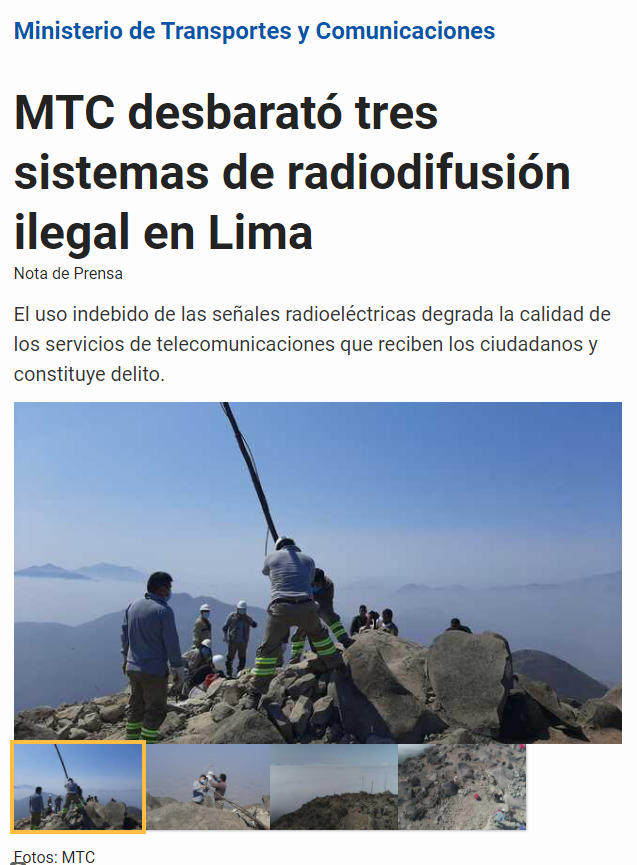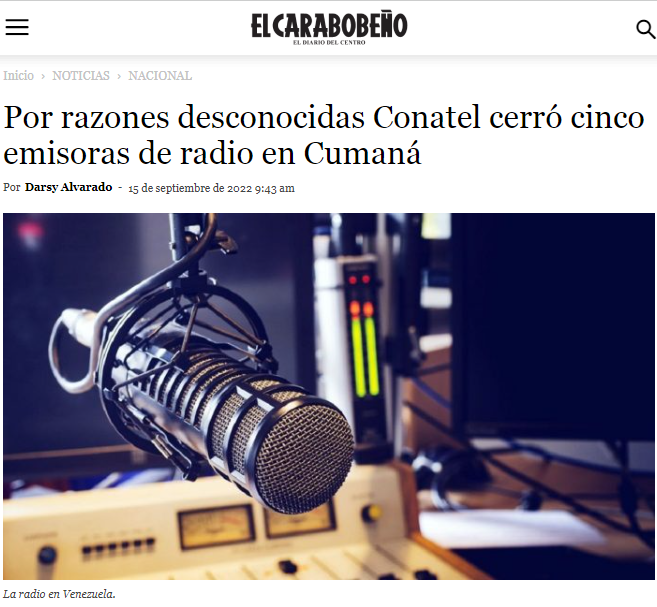
Source
The census of Venezuelan stations closed in the last three months continues. On 14 September 2022, Conatel officials targeted radio stations in Cumaná, in the state of Sucre, where five stations were silenced. The stations are: 89.7 Radio Boom; 95.1 Mágica FM; 100.9 Café FM “Con aroma de café!”; 101.3 Cool FM “La emisora entretenida”; 102.1 NVH Radio. But there is also a tweet from the SNTP journalists’ union, the primary source of information on the closures, where it turns out that another radio station, switched off on the same day, has to be added to these. It is 107.9 Centeno FM.
20 September 2022: three stations in Cabimas, in the state of Zulia, are targeted: 92.7 Éxitosa FM; 93.5 Suprema FM (Christian station); 98.5 Jerusalén Stereo FM.
October is no different
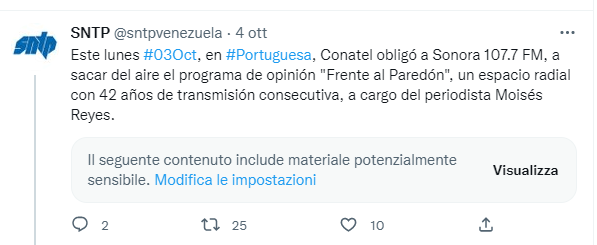
Source
3 October 2022. Conatel forced 107.7 Sonora to take off air the opinion programme ‘Frente al Paredón‘, a radio station with 42 years of consecutive broadcasts, by journalist Moisés Reyes. In Yaracuy, three more stations closed in early October: 102.9 Luz, 90.3 Oasis and El Trocadero, and Cuarto Angel 106.3.
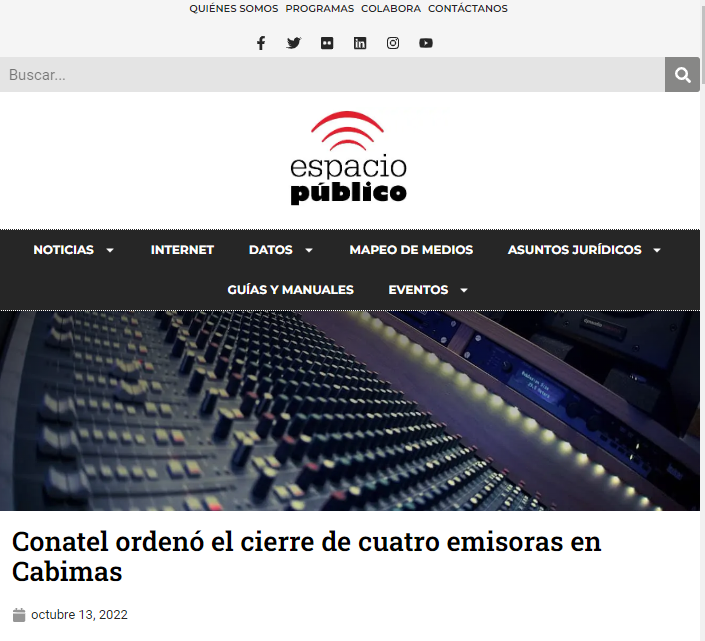
Source
On the same day, Conatel started a document review process for the station Super 101.5 FM, based in Ocumare del Tuy, Miranda state. Three days later the station decided to switch off to avoid sanctions. Their lawyer, José Luis Azuaje, pointed out that the station had complied with all Conatel’s requirements, but had been waiting for an answer on its concession for at least seven years.

Source
14 October: 105.3 FM and 91.5 Play Top, both from the Unión Radio circuit in Valencia, in the state of Carabobo. In Yaracuy FM 106.3 in Nazareth, in the municipality of Nirgua.
18 October: Bahía 102.5 FM, in Cumaná, in Sucre.
19 October: Sur del Lago Stereos 91.9, Somos 95.5 and Gustosa 98.7.
20 October: 88.3 Fantástica, 99.9 Piragua and 102.9 Zulianísima. They operated in the municipality of Colón, Santa Bárbara de Zulia.
21 October: Catholic radio station Radio Paz 103.1 FM, which belonged to the diocesan curia (in the state of Portuguesa, centre of the country).
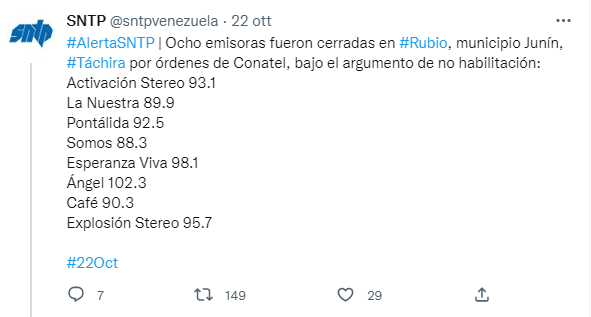
Source
22 October: Villa 103.5 FM, a community station in the municipality of Gómez, in the state of Nueva Esparta, that has been operating for some 15 years.
On the same day, eight radio stations were closed in Rubio, Junín municipality, Táchira state, on orders from Conatel, on the grounds that they were not authorized:
88.3 Somos
89.9 La Nuestra
90.3 Café
92.5 Pontálida
93.1 Activación Stereo
95.7 Explosión Stereo
98.1 Esperanza Viva
102.3 Ángel

Source
Six radio stations were closed on 27 October 2022 in Coro, Falcón State. In a phone call to administrators, Conatel ordered the removal of Falconiana 102.7, Corianísima 90.1, Top 97.1, Guadalupana 105.1, Fiesta 106.5, and Metrópolis 88.1.
28 October: Éxitos 99.1 FM in Valencia in the state of Carabobo. It also ordered the closure of Platinium 88.1 FM, Innovación Panamericana Stereo 98.3 FM, and Alegría 104.9 FM, in the Panamericano municipality of Táchira state. Three radio stations were closed in Ciudad Ojeda on Conatel’s instructions: Melódica 92.3 FM (one year on the air), Mágica 93.3 FM (15 years on the air), and Ke Buena 101.1 FM (6 years on the air).
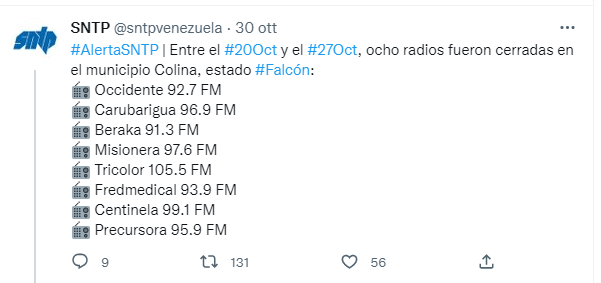
Source
Between 20 and 27 October, eight radio stations were closed in Colina municipality, Falcón state:
91.3 Beraka
92.7 Occidente
93.9 Fredmedical
95.9 Precursora
96.9 Carubarigua
97.6 Misionera
99.1 Centinela
105.5 Tricolor
30 October 202: closed Emisora Cultural de Coro 97.5 FM (25 years on air).
(Written by Fabrizio Carnevalini)

